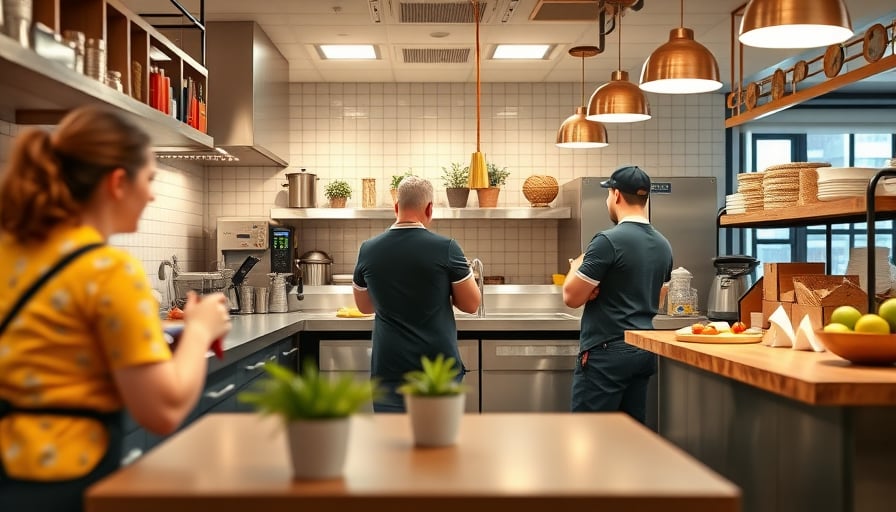Chipotle’s Recent Earnings Highlight Shifting Consumer Dynamics
Chipotle Mexican Grill Inc. has attracted heightened scrutiny in recent market commentary, prompting a broader reassessment of consumer spending patterns across the fast‑casual segment. Analysts point to a pronounced decline in sales among younger cohorts, a trend that may signal a slowdown in the company’s growth trajectory as economic pressures tighten discretionary budgets.
The Generational Gap in Dining Preferences
Data from the latest earnings report reveal that the 18‑ to 29‑year‑olds, a demographic that has traditionally propelled the fast‑casual boom, are now allocating a smaller share of their food budgets to chain restaurants. This shift aligns with a cultural movement toward experiential dining and home‑cooking, driven by a desire for authenticity, personalization, and convenience. Millennials and Gen Z consumers are increasingly favoring brands that offer digital ordering, real‑time customization, and seamless integration with their mobile ecosystems.
For Chipotle, the implication is clear: sustaining relevance will require a tighter focus on digital engagement while preserving the tactile experience that defines its brand. The company’s recent push for contactless pickup and mobile app enhancements reflects this dual strategy, yet the pace of adoption suggests there is room for deeper innovation—particularly in leveraging artificial intelligence to anticipate customer preferences and streamline inventory management.
Digital Transformation Meets Physical Retail
The convergence of digital and physical retail is reshaping the value chain for food‑service operators. Chipotle’s “Chipotle Delivery” partnership with major third‑party platforms, coupled with its proprietary “Order Ahead” system, has extended its reach beyond the storefront. However, the cost of last‑mile logistics and the dilution of brand control raise concerns about long‑term profitability.
A forward‑looking approach would see Chipotle expanding its own delivery network, potentially through autonomous vehicle technology or strategic collaborations with logistics firms. Meanwhile, enhancing the in‑store experience—through real‑time kitchen displays, augmented‑reality menus, and personalized loyalty rewards—could deepen customer engagement and mitigate the erosion of foot traffic.
Competitive Pressure and the Imperative for Innovation
Industry observers note that Chipotle’s recent financial disclosures reflect not only generational spending shifts but also intensified competition from both established fast‑casual rivals and emerging niche players. These competitors are capitalizing on trends such as plant‑based cuisine, hyper‑local sourcing, and subscription‑style meal plans. To maintain market share, Chipotle must accelerate innovation across menu development, supply‑chain resilience, and omni‑channel marketing.
One actionable pathway is the expansion of a “flexible menu” strategy that allows rapid iteration of seasonal, region‑specific offerings. Coupled with data analytics to track consumer response in real time, this could help Chipotle stay ahead of shifting dietary preferences and reduce menu redundancy costs.
Societal Changes as Market Opportunities
The broader societal landscape offers clear signals for investment in the consumer sector. The rise of sustainability consciousness, the normalization of remote work, and the demand for wellness‑oriented food choices create fertile ground for brands that can weave these themes into their core offerings. Chipotle’s commitment to sourcing responsibly and its public emphasis on transparency in ingredient provenance position it well to tap into the growing “green consumer” market.
Moreover, the integration of digital platforms provides a conduit for collecting granular customer data—preferences, purchase frequency, and sentiment—that can inform targeted marketing campaigns and product development cycles. By aligning its business model with these evolving consumer expectations, Chipotle can transform potential headwinds into strategic advantages.
Looking Ahead
In conclusion, the recent earnings report underscores a pivotal moment for Chipotle Mexican Grill. The intersection of digital transformation and physical retail, coupled with shifting generational spending patterns, demands a recalibration of the company’s growth strategy. By investing in technology that enhances personalization, expanding sustainable sourcing initiatives, and fortifying its omnichannel presence, Chipotle can not only weather the current economic turbulence but also position itself as a resilient leader in the fast‑casual arena.
